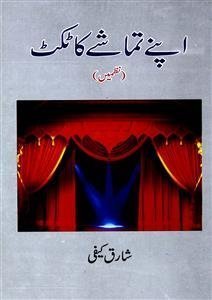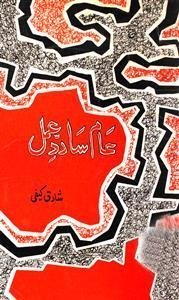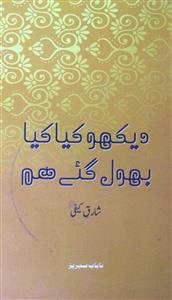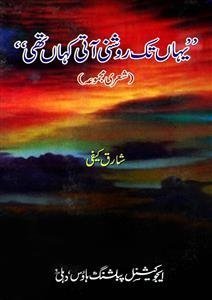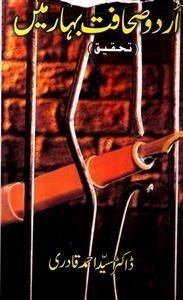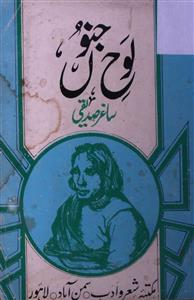 For any query/comment related to this ebook, please contact us at haidar.ali@rekhta.org
For any query/comment related to this ebook, please contact us at haidar.ali@rekhta.org
About The Book
شارق کیفی ہندوستان میں چند اچھے نظم کہنے والوں میں سے ہیں،انہوں نے غزلیں بھی کہی ہیں لیکن ان کے تخلیقی انفراد کی جتنی صورتیں ان کی نظموں میں نظر آتی ہیں اتنی غزل میں نہیں ۔غزل پھر بھی ایک سطح پر جاکر اپنی صنفی حد بندی کا شکار ہوجاتی ہےاس کےبرعکس آزاد یا نثری نظم کے شعری بیانیے میں نئے تخلیقی امکانات کو ان کی اپنی صورت میں قبول کرنے کی گنجائش زیادہ ہوتی ہے۔شارق کیفی نے ان گنجائشوں کو ان کی آخری حد تک استعمال کرنے کی کوشش کی ہے،اس کا ثبوت ان کے شعری اظہاریے کی تشکیل ہے۔شارق کیفی کے موضوعات کا بنیادی حوالہ زندگی کی منفیت اور اس کاتاریک ترین پہلو ہے۔روزمرہ کی زندگی کی ان کیفیتوں سے ہم سب کا گزر ہوتا ہے لیکن کسی آسانی کی طرف نکل جانے کی عجلت ہمیں رک کر سوچنے نہیں دیتی، شارق کیفی نے جس گہرے احساس کے ساتھ ان کا بیان کیاہےوہ چونکاتا ہے۔ اردو نظم کی روایت میں یہ بالکل ایک تازہ اظہار ہے ان نظموں کو پڑھئے اور اپنی رائے دیجئے۔
About The Author
Shariq Kaifi (Syed Shariq Hussain) was born on June 1, 1961, in Bareilly, Uttar Pradesh, where he completed his B.Sc. and M.A. (Urdu).
His father, Kaifi Wijdani (Syed Rafaaqat Hussain), was a renowned poet, passing down the legacy of poetry to him. His first collection of Gazals, “Aam Sa Rad-e-Amal”, was published in 1989, followed by a second ghazal collection, “Yahan Tak Roshni Aati Kahan Thi”, in 2008, and a collection of Nazms titled “Apne Tamaashe Ka Ticket” in 2010. Shariq Kaifi currently resides in Bareilly.
Shariq Kaifi’s poetry, both in Gazals and Nazms, stands apart from conventional poetry. His tone, thought, narrative, and technique make him unique among his contemporaries. His Nazms brilliantly encapsulate social realities through what one could call a “fourth eye”. To truly understand this perspective, one must read his work carefully and reflect on it.
Shariq Kaifi’s poetry reflects the present era—a clean, unadorned form free from cheap embellishments. It may appear straightforward and transparent, but it carries deep meaning, directly addressing human relationships. It touches, soothes, and acknowledges themes such as the respect, complexity, and fragmentation of relationships. Tackling themes of love, friendship, betrayal, hostility, denial, and acceptance, his poetry strikes powerful blows on social attitudes with a skill that leaves a lasting mark, even as those affected struggle to find the source of the impact.
 For any query/comment related to this ebook, please contact us at haidar.ali@rekhta.org
For any query/comment related to this ebook, please contact us at haidar.ali@rekhta.org
Write a Review
Jashn-e-Rekhta 10th Edition | 5-6-7 December Get Tickets Here
